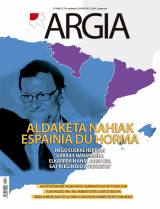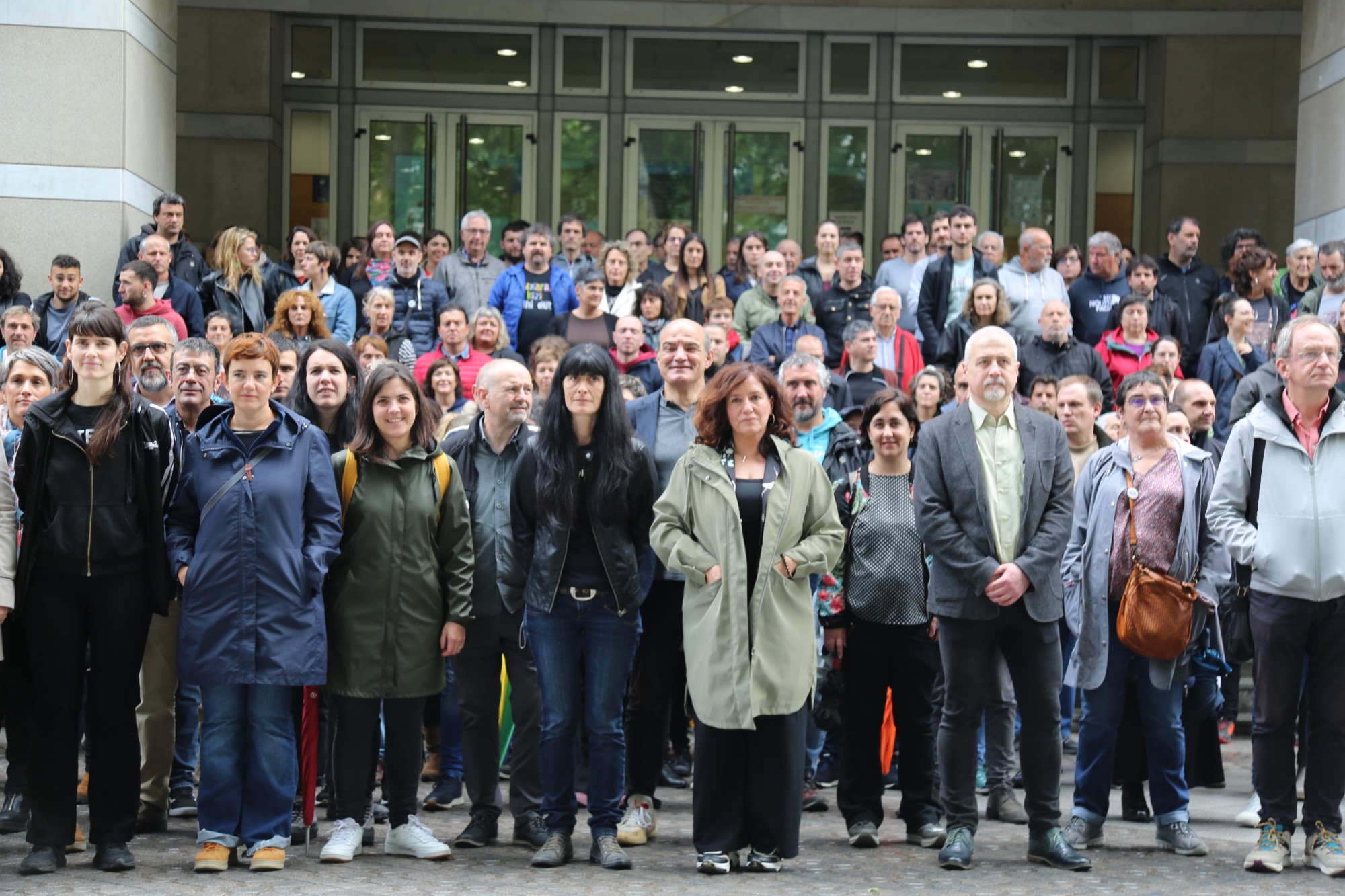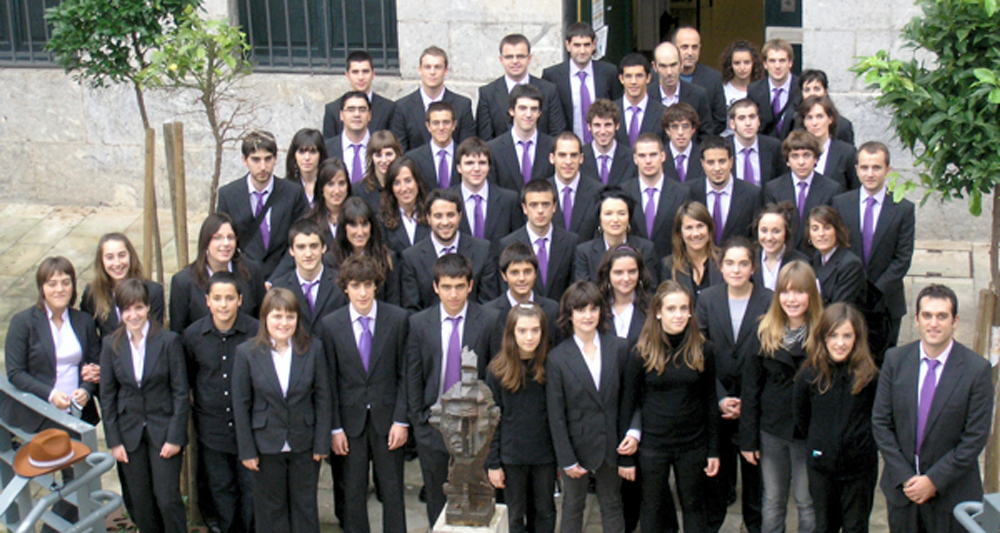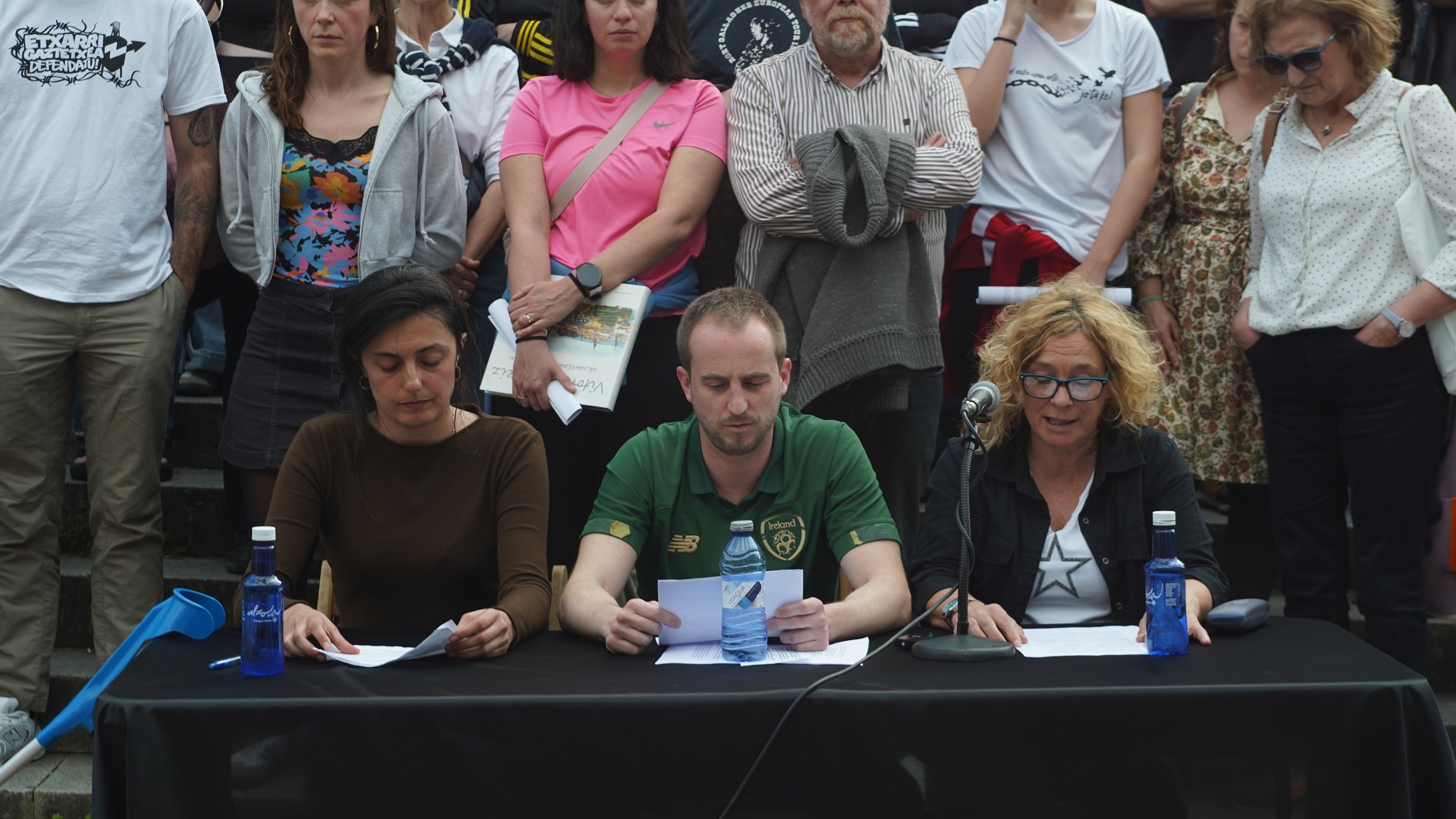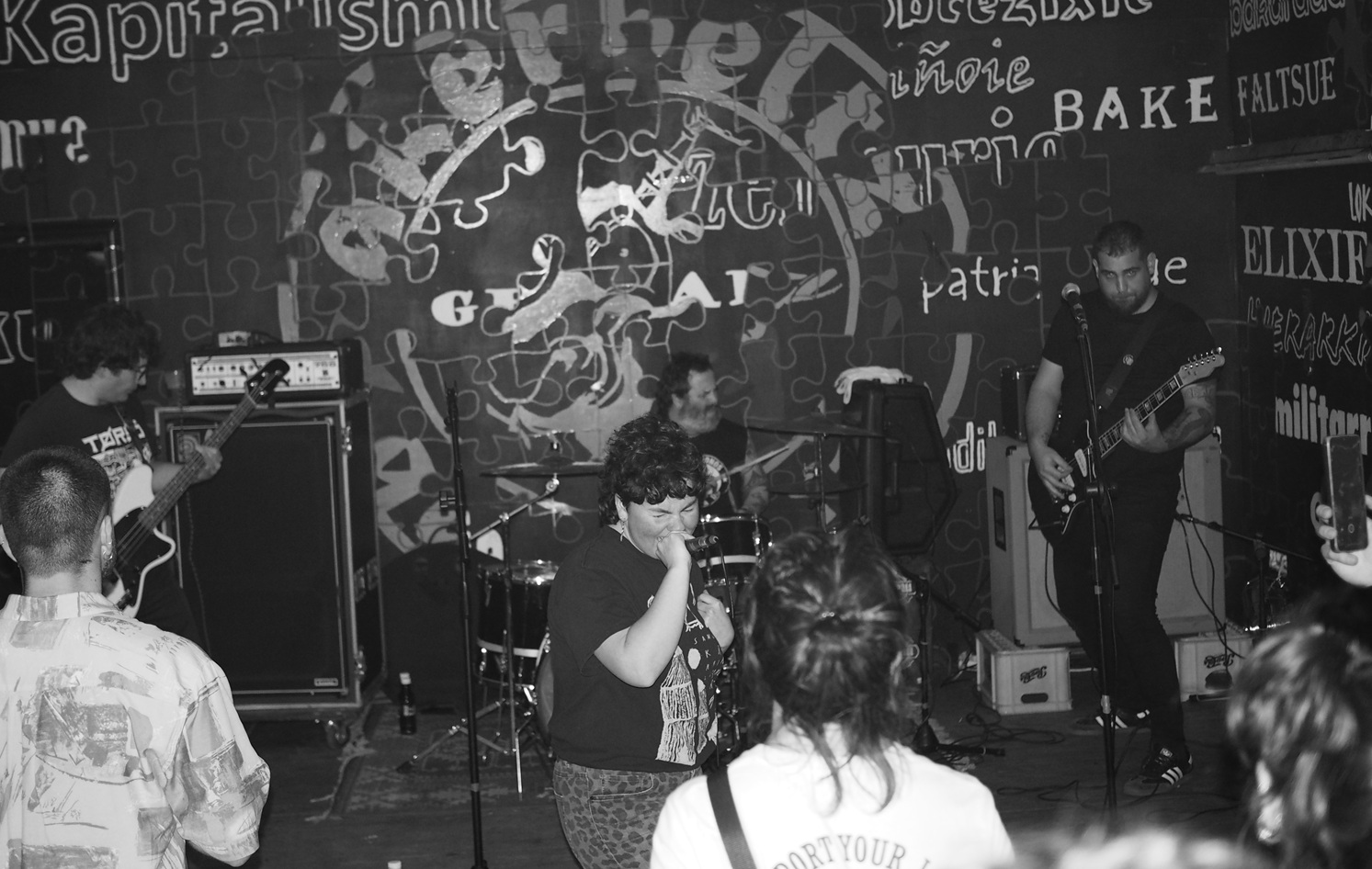"There's a snob trend in the bands: if you don't do better music, make latest fashion music"
- Every musician on the lectern, their score, their tree. Flat with all the voices in the same director. “I want to make you see the forest.” Shake your arms and collect them silently, without cutting the wings to anyone, at 50 “ego”. And turn the collective breath into art. Giant lung with percussion beats. It's the wind and percussion orchestra. That's the band.
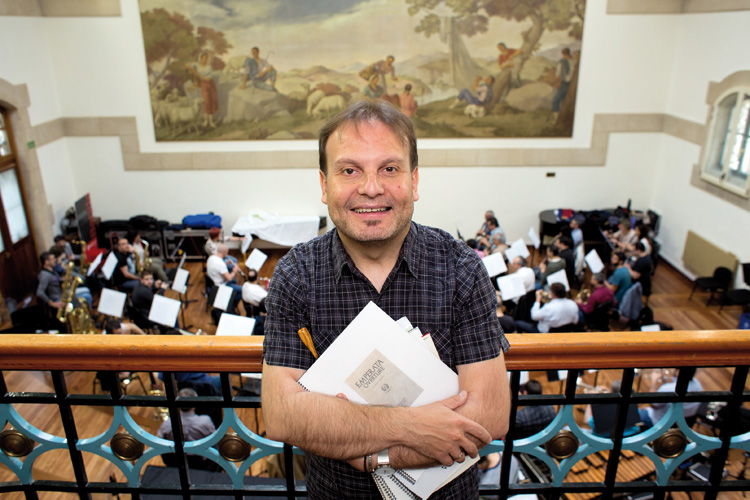
You have written it “the score is not music, it is a role that can be burned”.
Human beings create somebody's music, for a moment, for someone.
“Historically, the cultures of different peoples have sounded with the sound of a band in their soundscape,” he says on his website. And music, culture, language -- they're totally linked to the ecosystem of their land. Artists are also the fruit of the earth...
In my case, culture also took me. I played in the village band the bombardment, in the Conservatory the piano and in the church the organ. And run the female choir and the group of dulzaines. I went to do a piano course and it was suspended, so I entered the course in the direction. The professor was a famous Dutch band director, Jan Cober… and I was surprised. It opened me up to my eyes to a whole new world for me, and I fell in love with it. At 22, I left the Classical Philology career in the 3rd and went to study with her in the Netherlands.
The roots are very present in the essays; the croquette of the grandmothers in the kitchen with the most of the chickpeas makes you understand the development of a complex symphony… it all serves to explain the musically very abstract.
Yes, I like to find the connection between different experiences and, if I can, learn from all.
But, look, the point you like precisely was the point of most disagreement I have had with Cober. I thought I was too tied to my country. I believe that going abroad has made me appreciate more about the house, but at the same time traveling so much has made me see that in every place there are people in love with their culture and their language.
There are directors who say that there are enough 6 words to run an orchestra well; faster/slower, higher/quieter, longer/shorter. But in his case, he tells us about the environment of the work, its internal structure, shows us the tricks and internal seams of the composers. The intellectual work that goes beyond the start of the concert is remarkable.
Yes, absolutely. I know that School of Management and I have discussed this with colleagues who do not like my way of working. I respect it: there are directors who use six words… and even more; there are musicians who like to use only six words. But like St. Thomas, I'm going to change my attitude when I see that I've been wrong. And my experience has taught me that when the musician makes them feel part of the maturation process of the work and transmits my idea to them, the group is getting better and over time getting stronger. For me, there's a fundamental idea: the director doesn't have to give orders, he has to convince a group of individuals. And if for that I have to give an explanation to the group, I give it to you. Going to a technical request with a logical explanation generates a line of work and over time this way of working is much more effective. It is not a question of me being quicker, of knowing more, but of working long before we reach that conclusion, a profound reflection. This is what gives my work strength.
And that gives you an authority. In such large groups … there are those who use authoritarianism.
In the twentieth century, the development of the director’s figure gives rise to a long dialogue! What happens with authority is that managers are presupposed to be authority, and I don't think so. Authority, doing its job well, has to win, is not necessarily linked to the role of director.
I'd like to ask you about the differences between amateur and professional bands and what each contributes to society.
Amateur gangs are an event in Europe. From the point of view of the contributions, the music of the theatres has been transferred to the smaller towns; at that time and situation, otherwise it would not have arrived. On the other hand, dance groups have emerged from the music bands, many of the materials of popular music have been recovered or a lot of music has been created for the bands… The bands in the nineteenth and twentieth centuries have been broad cultural spaces, contributing in many ways to the lives of the peoples. My father told me that his uncle was playing tuba and he knew how to read sheet music and not text.
The problem of amateur gangs has, in my opinion, been that as times have changed they have not developed as a society. For example, in my time the band was a place to meet with friends. But today, the possibilities have spread enormously, the Internet is there, money to go out into the street… I believe that even today the bands have a great social responsibility. But the band has an obligation to connect its activity with the society around it. And to make it attractive, measure what to do and how to do it.
You say that many bands are outwardly oriented in that desire for development…
Globalisation has led us to imitate the outside, without making any thought.
We want to hear a repertoire that we like and do it among ourselves, without thinking about whether we have the level to do it right. What do I need to improve as a team? What works do we have in the archives that can help it?” In fact, we've gone from touching the classical works' arrangements to the latest fashion, without knowing works written for band for almost a hundred years. There's a kind of snob that consists of making latest fashion music if the music doesn't get better.
Now tell me about professional gangs. What a difference and what a function they have in society.
For me, the main difference is in social function. It must offer society a different symphony institution, with its own identity, capable of offering multidisciplinary initiatives and at the level of other symphony institutions. And it has a responsibility to educate the public and take it to places that the amateur band can't take.
Let's come to Bilbao; my goal is to develop a development line and expand the band's fans' vision of this musical group.
The title of your first season in the Basque Country is “Get to know the corners with the band”. And each concert has been working around a theme. “From the classics to Japan”, “Getting to know the painting”, “Getting to know the new music”, “Getting to know the dance”, “Getting to know the Swiss music”…
I believe that a professional band is a “cultural instrument”. A wind and percussion orchestra. Make art. And popular and contemporary music to address what is capable. And the one that's in contact with other artistic manifestations, which can attract different creators. Because it is an extensive, eclectic and varied plot of land. Many people who have come to the concerts of the Euskalduna from other fields of art have become anointed, did not expect a band to play like this. The Band of Bilbao, one of the oldest musical entities in the city, is yet to be discovered.
For you it is to have a good director…
Almost a life approach. Because being a director implicitly brings hours of uninterrupted training, but also some ways of acting. Your role is to interpret the score with respect but with a courageous approach. Bring the creation of the composer to the world and transmit it after passing through your sieve. And that's doing teamwork. The complex and exciting aspects of working with people.
“The director doesn’t have to give orders, he has to convince a group of individuals.”
With a lot of humor, what serious work!
The truth is that I do not lack humor nor in my daily life! Humor, well used, is a means of communication. A crude, brazen, proud and ruler director has no place in today’s society.
The Japanese call it “ikigai”: reason for being, your place in the world, passion ... What is your ikigai? (Should I say “irrikgai” in Basque?)
I believe that everyone has a role in the world, but not because it is better than yours. Each one has a character, either with the good or the bad, but this generates a balance with the others. Like a large orchestra, the medullary is made up of a wide variety of musical instruments, each one of them of its color and nature. And if we are willing and able to communicate with each other, we can all create a joint, solid and beautiful art job. Directors have to know how to create paths so that we can understand each other. My motto starts with myself and ends where I can hurt someone. I would say it's trying to do my best in every situation.
Regarding what we need, in the article he says that “the emotions that those responsible for what perhaps they call the welfare state believed are not products of first necessity and that the knowledge and cultural growth of the people can end their privileged position”.
I have written a Christmas in the morning, I got up well, ha, ha… I think that in times of crisis aid is first removed to what is not urgent. And art isn't urgent. But this reflection is precisely what I do to get to the opposite place; of course, if the question is whether you have to put warm food on a child or make a concert in the Euskalduna, there is no doubt. But that can't always get you out of the culture. And to disguise other interests as necessary… Perhaps culture is not urgent but urgent for life. It's no small thing to think about how to build a society where we can survive and live a little happier.
To finish…
I think it would be important to think that there is no welfare society, if not for everyone. It's hard to explain what happiness is, but perhaps the work that has touched each of us is trying to do it better than we know, offering each of us his or her efforts to the action of the world. Everyone feels that they have a place (even if they think, talk, believe differently) and give them the best of themselves. So humble and so effective at the same time.
Until now we have believed that those in charge of copying books during the Middle Ages and before the printing press was opened were men, specifically monks of monasteries.
But a group of researchers from the University of Bergen, Norway, concludes that women also worked as... [+]
Florentzia, 1886. Carlo Collodi Le avventure de Pinocchio eleberri ezagunaren egileak zera idatzi zuen pizzari buruz: “Labean txigortutako ogi orea, gainean eskura dagoen edozer gauzaz egindako saltsa duena”. Pizza hark “zikinkeria konplexu tankera” zuela... [+]
Aposapo + Mäte + Daño Dolor
When: April 5th.
In which: In the Youth Center of Markina-Xemein.
---------------------------------------------------------
I’ve made my way to the cheese house with the shopping cart full of vegetables, and we’ve spent the evening cutting... [+]









